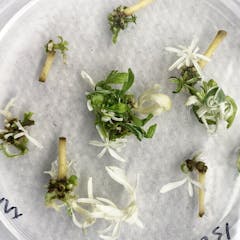
Articles on Famine
Displaying 61 - 80 of 100 articles

If a country refuses, or blocks, humanitarian aid this act violates international law.

The Trump White House questioned the value of foreign aid and neglected policies related to helping low-income countries. But US aid had already needed improvement.

Food security in Tigray was becoming critical even before the current armed conflict.

For the second time this century, crises have led to calls to transform our global food system. We can start with restructuring the global food trade so that it complements local food systems.

Despite their popularity, there are reasons to doubt whether “home gardens” provide a sustainable and cost-effective way of addressing hidden hunger.

The Greeks treated their city-states like bodies. To protect them from disasters, it was the poor that were often sacrificed.

The availability of data and evidence in the agricultural sector is critical for decision making

A combination of reasons have led to the drying of the Sahel.

Predictions suggest that Africa will suffer dramatic losses of crops and productive land as the climate warms. Perhaps adopting GM crops designed to tolerate stress can save the continent from famine.

South Sudan faces numerous and serious challenges contributing to instability. But there are potential solutions.

Images of famine or poverty are often used by human rights groups to galvanize support. And they often do. The ethics of these images is a more complex story.

Having only recently been removed from their homelands, it’s remarkable that the tribe decided to send such a donation.

GMO crops have been rejected by many countries and consumers. Now, an international team of researchers are creating better crops using DNA editing–without inserting foreign genes into the plant.

It’s wrong to blame climate change for famine and conflict. These can either be prevented, or the impact minimised, if institutions and mechanisms of good governance are in place.

The distinction between food insecurity and famine is artificial and unhelpful. Hungry people are suffering however their situation falls below the radar.

An academic article that asserted the benefits of colonialism caused an outcry and resulted in calls for its removal. A post-colonial expert explains why.

If the G20 is to remain relevant in the quest for more inclusive and fair global governance, Africa offers an historic opportunity for collective action, despite the absence of the US under Trump.

Diversity, resilience, resistance to disease: seeds must be preserved to ensure we can feed our world in the future.

Already one of the world’s most urgent humanitarian disasters, the situation in Yemen is only getting worse.

Rules imposed after 9/11 and still on the books are getting in the way of delivering aid to conflict zones. In countries like Yemen and Syria, it could mean the difference between life and death.





